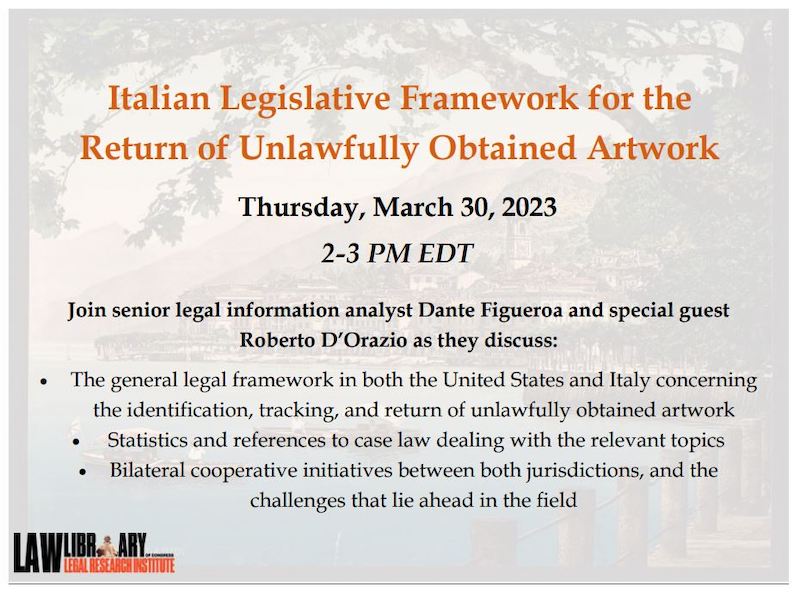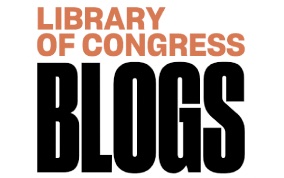The following is a guest post by Dante Figueroa, a senior legal information analyst at the Law Library of Congress covering Italian, Vatican, Roman, and Canon law.
Join us on March 30, 2023, at 2 p.m. EDT for our next foreign and comparative law webinar titled, “Italian Legislative Framework for the Return of Unlawfully Obtained Artwork.”
Please register here.
Cultural heritage is a footprint for a nation’s identity, as it helps societies to understand their roots, promote diversity and solidarity, and identify a set of values to be protected and transferred to future generations. Cultural heritage is also a source of great wealth for nations. Accordingly, international law has established the obligations of states to tackle the phenomenon of unlawful trafficking of cultural objects. In addition, domestic law usually binds museums and art galleries with common guidelines or shared protocols regarding the acquisition of artwork. In the case of the European Union, the acquisition, handling, and transfer of artwork are protected, requiring a coordinated effort by member states to safeguard their relevant cultural heritage. In this context, the Italian model generates particular interest, considering its huge arsenal of artwork and the experience accumulated by its administrative bodies in tracking and retrieving unlawfully-discovered or exported artwork. Italian legislation itself is the product of a historical tradition, as the first statutes in this field were adopted in the 19th century, preceded by earlier examples dating to the Renaissance. Hence, this webinar will address these aspects related to the transboundary tracking and recovery of artwork, with a focus on the United States and Italy.

This entry in the series will discuss the general legal framework in both the United States and Italy concerning the identification, tracking, and return of unlawfully obtained artwork. The presenters will also share some statistics and refer to case law dealing with the relevant topics. Finally, they will identify bilateral cooperative initiatives between both jurisdictions, and the challenges that lie ahead in the field.
Presenter Roberto D’Orazio is a permanent official at the Italian Parliament, currently serving as a comparative and foreign law researcher at the Library of the Chamber of Deputies. He holds a law degree and has published many articles and essays mainly in comparative and European law. A member of several law journal editorial boards, he was a panel member and presenter at various national and international conferences and workshops and participated in national research projects.
Presenter Dante Figueroa is a senior legal information analyst and has worked at the Law Library of Congress since 2006. He has a J.D. degree from the University of Concepcion, Chile, an LL.M. from the University of Chile, and an LL.M. from American University in Washington, D.C. He is fluent in Spanish, English, French, and Italian and conversant in German and Portuguese. He covers Italian, Vatican, Roman, and Canon law.
Subscribe to In Custodia Legis – it’s free! – to receive interesting posts drawn from the Law Library of Congress’s vast collections and our staff’s expertise in U.S., foreign, and international law.




